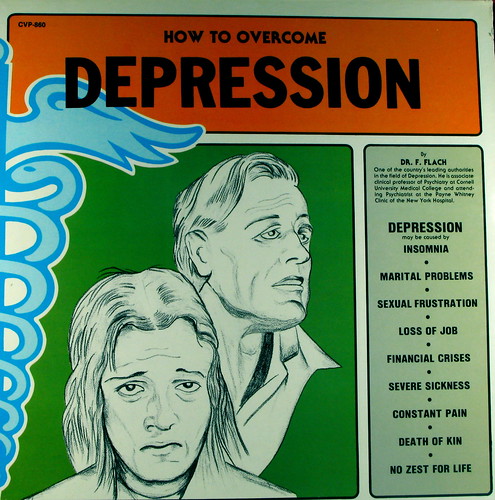Can clinical depression improve decision making?
.According to a new study by Bettina von Helversen (University of Basel, Switzerland), Andreas Wilke (Clarkson University), Tim Johnson (Stanford University), Gabriele Schmid (Technische Universität München, Germany), and Burghard Klapp (Charité Hospital Berlin, Germany), depressed individuals perform better than their non-depressed peers in sequential decision tasks.
And:
…In addition to resembling everyday decision problems, such as house shopping and dating, the task has a known optimal strategy. As reported, depressed patients approximated this optimal strategy more closely than non-depressed participants did.
While healthy participants searched through relatively few candidates before selecting an applicant, depressed participants searched more thoroughly and made choices that resulted in higher payoffs.
This discovery provides the first evidence that clinical depression may carry some benefits.
Source: Science Daily
Jonah Lehrer wrote a wonderful piece last year covering similar findings. Jonah is the author of How We Decide, which I highly recommend.
You can also subscribe via RSS, Twitter, or email. Check out the site’s most popular posts of all time.
Related posts:
Can ancient Chinese philosophical advice help us find happiness today?
At what annual salary does money stop making us happier?
Does having more TV channels increase the happiness of heavy TV watchers?
What makes women happier: church or shopping?
Does vacationing add to our happiness in the long run?
Are songs getting happier or sadder? How about blogs?
Which emotion is better at helping an athlete win: anger or happiness?
Do happily married people sleep better?
How to make yourself happier in just a few seconds
What makes us happiest: work, love or leisure?
Can thinking quickly make you happy?
How does what you have and what you want affect happiness?
Do happy people love their jobs or do good jobs make people happy?





